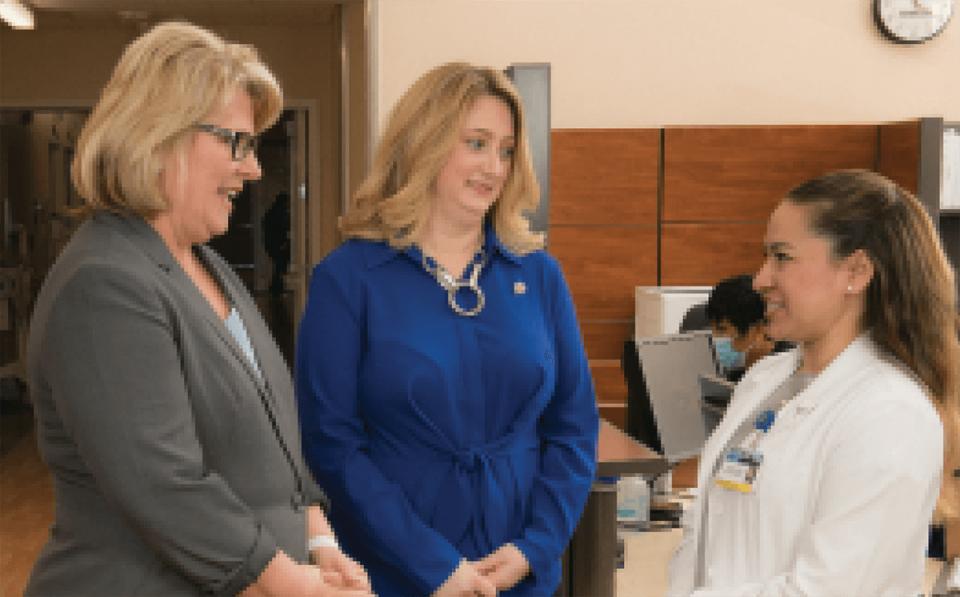
Nurse Practitioners
Prepare to Serve the Valley
Preparing nurse practitioners to serve rural Central Valley patients with limited access to care is one of the goals of the Family Nurse Practitioner Partnered Residency Education Program (FNP PREP), an innovative academic-clinical partnership between FPU and Madera Community Hospital (MCH).
There is a short supply of primary care medical providers, particularly in smaller communities in Central California where families may drive long distances and wait hours for medical care. With their focus on managing illness and preventing disease, nurse practitioners have graduate nursing degrees and the advanced practice skills needed to serve these communities.
Under traditional clinical education models, California nurse practitioner students must complete hundreds of hours of hands-on training in several areas of practice that they arrange themselves with local medical providers. FNP PREP offers students a “residency” entirely through MCH and its rural health care clinics and their affiliated and employed group of providers called “preceptors.” Residency students study at the North Fresno and Visalia campuses.
Nearly 40 residency students have already benefited from the program, which launched in May 2017. “Working in different areas within the same hospital has allowed me to see the continuity of care be fulfilled. It has also allowed me to better understand the resources available to best meet patient needs,” said student Natalie Junkin.
“It exposes students to the diversity of specialties a hospital is comprised of,” added student Gursimranjit (Nikki) Tiwana. “Having rotations in the different specialties broadens clinical knowledge in those specialties and gives students insight as to what their niche might be.”
FNP PREP came out of conversations between Lisa Hood, director of FPU’s master of science in nursing and family nurse practitioner program, and Karen Paolinelli, interim CEO at MCH, who have worked together as nurse practitioners in the past. While doing doctoral research on improving clinical education, Hood found a lack of standardized clinical education programs for nurse practitioners. “FNP PREP allows faculty to focus on training students and strengthening the partnership with MCH instead of trying to find each student qualified preceptors amid the shortage,” Hood said.
Having worked with and instructed nurse practitioners since 1992, Paolinelli knows firsthand the shortage of providers and need for providers to precept. Understanding the difficulty in recruiting nurse practitioners to the Central Valley made her willing to partner and co-develop the program. “The care nurse practitioners give is crucial,” Paolinelli said, “FNP PREP provides a comprehensive approach to precepting which includes multi-specialty and community-wide collaboration with providers.”
Students serve while they learn. “FNP PREP is providing an excellent opportunity for FPU students to be involved with a local network of providers and to learn to care for the healthcare needs of this community,” Hood said.
